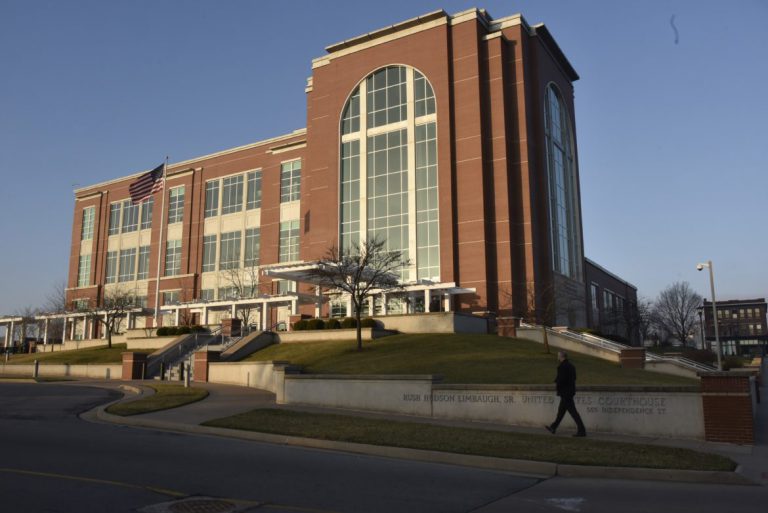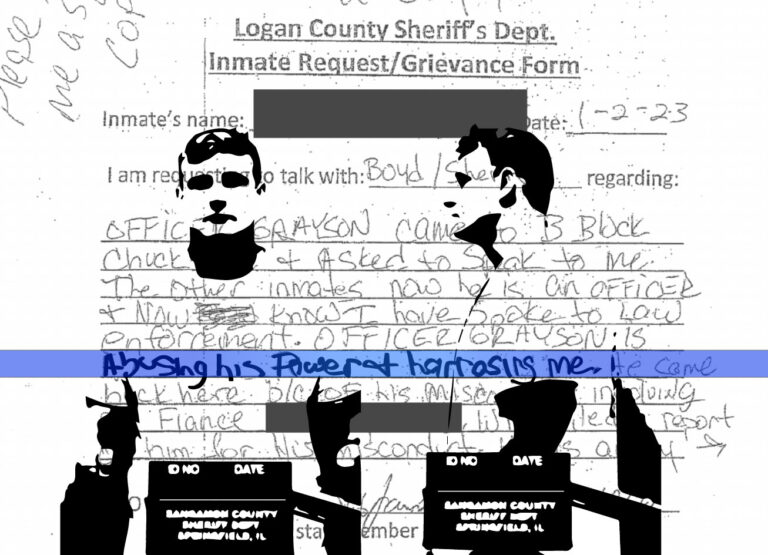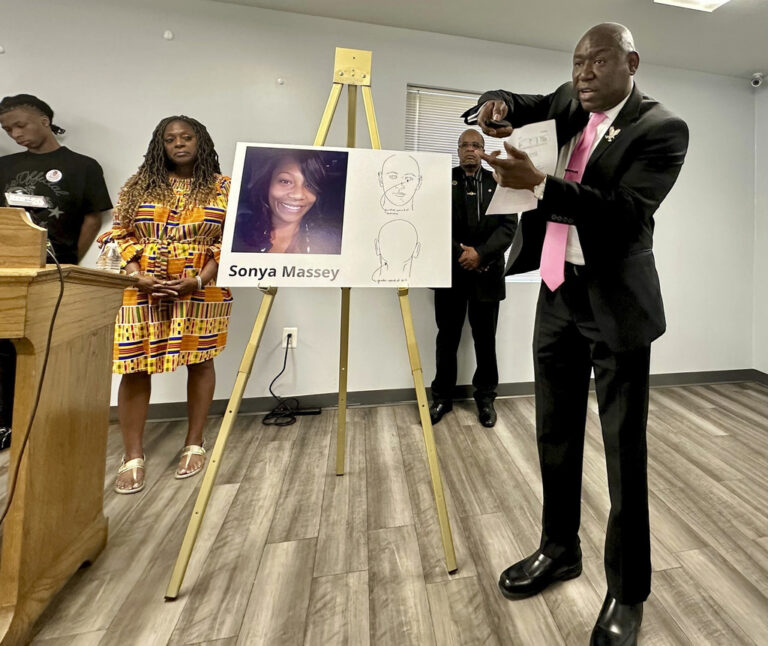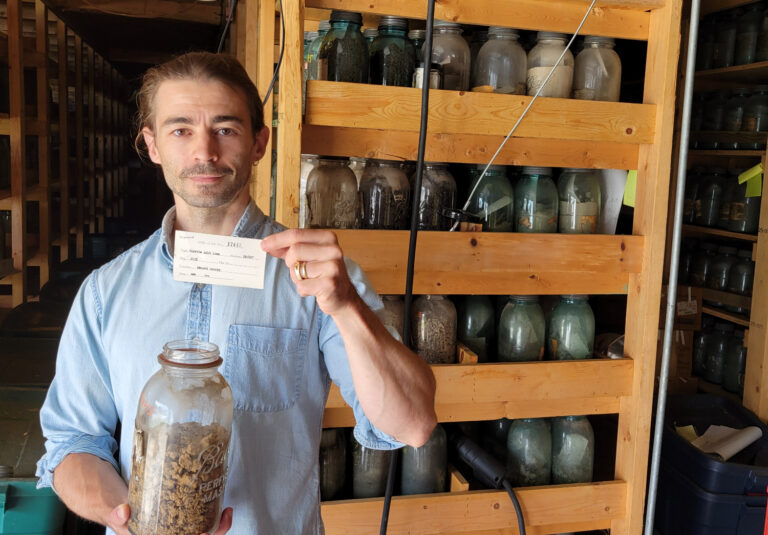Since 1970, Bill Bader has worked on peach farms in Dunklin County, Missouri, just north of the Arkansas border. Bader started picking peaches at age 13, and in 1988, he established Bader Farms.
The farm grew to become the largest peach grower in Missouri, shipping fruit to grocery stores such as IGA and Wal-Mart, as well as others across eight states in the Midwest and South.
“A peach we picked today will be in the grocery store tomorrow morning,” Bader testified in federal court in Cape Girardeau on Tuesday.
Bader took the stand a week and a half into a trial of a lawsuit he filed against German agribusiness giants Bayer and BASF. Bader alleges that drift from the herbicide dicamba has damaged his peach trees and made his 1,000-acre operation no longer sustainable.
His lawsuit alleges Monsanto, which was acquired by Bayer in 2018, and BASF released their dicamba-related products beginning in 2015, knowing they would cause damage to other farmers and prompt higher sales of the new products.
BASF’s sales of dicamba spiked in 2016, according to documents presented Tuesday in video testimony from Nathan Borgmeyer, who was product launch manager for BASF’s Engenia herbicide.
Despite telling farmers it was illegal to spray dicamba over-the-top of Monsanto’s new seeds in 2016, the company sold $100 million worth of its older versions of the weed killer, compared to about $60 million annually in 2014 and 2015. The documents stated that dicamba demand spiked with the rollout of dicamba-tolerant seeds.
The companies dispute Bader’s allegations that dicamba hurt his peach trees, claiming instead that the damages are due to an unrelated fungus and other natural causes.
But since the release of the new products, Bader testified that his peaches, generally the size of softballs and baseballs, have grown smaller.
In peak season, he said, the farm would employ as many as 110 people, picking peaches and shipping them, but in slow years, the farm only employees between 40 and 45 people.
“On the shorter years, it’s shorter than that,” Bader said.
Monsanto genetically engineered cotton and soybean plants that could withstand being sprayed by dicamba, after an increasing number of weeds developed resistance to the weed killer glyphosate (also called Roundup).
Dicamba was developed in the 1950s but was not widely used because of its propensity to unintentionally move from field to field. Many crops, including traditional soybeans, are extremely sensitive to dicamba.
In addition to the seeds, Monsanto and BASF developed new versions of the weed killer touted to be less volatile than previous versions designed to be sprayed on the crops.
The cotton seeds were released in 2015, and the soybean seeds were released in 2016, but the accompanying herbicides were not released until the 2017 growing season. In 2015 and 2016, many farmers allegedly sprayed older versions of dicamba, which drifted and harmed Bader’s farm and others, according to the lawsuit.
Bader alleges his farm continued to be harmed even after the accompanying herbicides were released. He alleges damages worth $20.9 million.
In 2017, at least 3.6 million acres of soybeans were harmed by dicamba, according to an analysis from University of Missouri weed science professor Kevin Bradley. In addition to Bader’s case, there is a class-action lawsuit involving other farmers’ complaints about dicamba.
Bader testified for about an hour and 15 minutes and had barely started to discuss dicamba before the court adjourned for the day. He will take the stand Wednesday morning.
On Monday, Dennis Cravens, a farm hand from southeastern Missouri, testified that he assisted in illegal spraying of older versions of dicamba in 2016 within a couple miles of Bader Farms.
Monsanto and BASF deny the allegations and previewed their defenses against Bader in their opening arguments last week.
Monsanto attorney Jan Miller said the trial will show that Bader Farms has no proof that dicamba sprayed on dicamba-resistant cotton and soybean seeds killed the trees. If Bader can’t prove that, then none of the other allegations matter, Miller said.
Instead, the farm’s trees were harmed by weather events, which Bader submitted insurance claims for, and disease, Miller said.
In testimony last week, Boyd Carey, regional agronomy lead at Bayer Crop Science, said he talked with Bader in 2016, when the farmer told him his crops had been hit by a number of pesticides, including glyphosate.
He also said one of the applications that allegedly harmed Bader Farms was on April 11, which is too early for over-the-top applications of dicamba because the crops haven’t started to grow yet.
Officials from both Monsanto and BASF have stated that their respective dicamba products will not cause any adverse effects when used according to the label, which instructs pesticide applicators how to spray the products.
Gary Schmitz, tech service regional manager for BASF, testified that even when applied according to the label, nearby crops may have some symptoms of damage, including cupped leaves, but that those symptoms will not affect yield.
However, while BASF told farmers there would be no yield impacts from dicamba drift in 2017, the company privately told applicators that the drift they caused could cause yield loss, according to BASF documents presented in Schmitz’s video testimony on Monday.
Carey also testified last week that Monsanto expected farmers to file thousands of complaints in 2017, despite the pesticide allegedly not having any issues with moving from where it is applied when used correctly.
Billy Randles, the lawyer for Bader Farms, said they’ll likely wrap up their case on Friday.
The trial is expected to last at least three weeks.
The Midwest Center for Investigative Reporting is a nonprofit, online newsroom offering investigative and enterprise coverage of agribusiness, Big Ag and related issues through data analysis, visualizations, in-depth reports and interactive web tools. Visit us online at www.investigatemidwest.org







